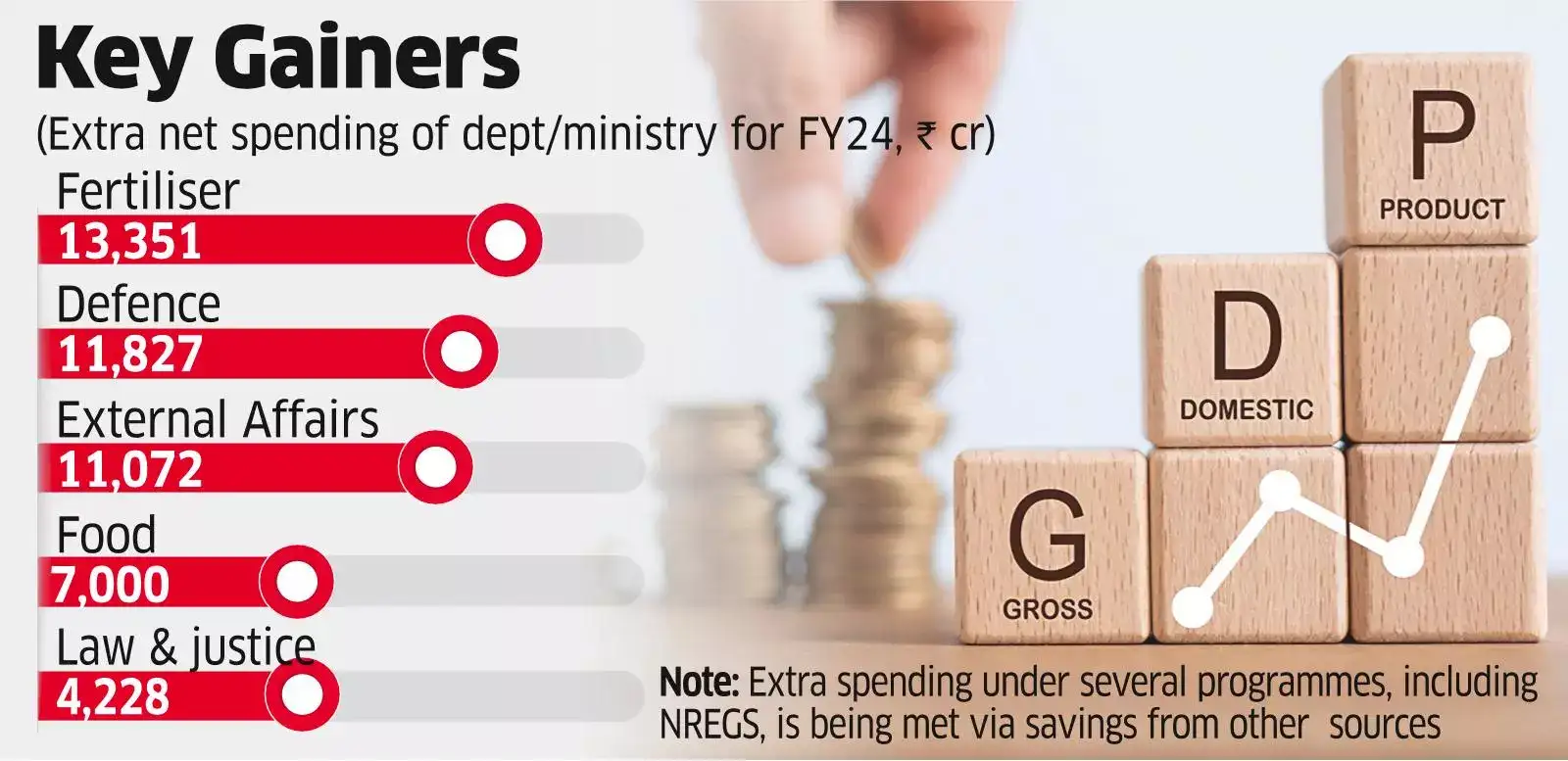The demands involve gross additional spending of more than ₹1.29 lakh crore in this fiscal, a significant chunk of which, ₹70,968 crore, will be met through savings or enhanced receipts of various ministries and departments, according to the papers tabled in both houses of Parliament.
Late last month, officials had said overall revenue collections were expected to remain robust this fiscal, while additional outgo under some programmes or heads could be significantly offset by savings in others and reprioritisation of expenditures.
The Centre‘s fiscal deficit in the first seven months of this fiscal hit 45% of the full-year target, a tad lower from 45.6% a year before, indicating that the deficit was under control.
 ET Bureau
ET BureauThe government had budgeted total expenditure at ₹45 lakh crore for 2023-24, while its tax and non-tax revenue was pegged at ₹26.3 lakh crore.
The net outgo under the first batch of supplementary demands for grants in 2023-24 is way below the level a year before, when the government had sought clearance for a net spending of ₹3.26 lakh crore and gross expenditure of ₹4.36 lakh crore.
However, this was because the 2022-23 budget calculations went haywire after the Ukraine war broke out unexpectedly, leading to elevated global commodity prices that inflated the government’s subsidy bill.
The latest supplementary demands include a total of 79 grants and four appropriations. They were tabled in the Lok Sabha by minister of state for finance Pankaj Chaudhary.
A large part of the proposed net cash outgo includes additional spending on fertiliser subsidy (₹ 13,351 crore), transfer to the external affairs ministry’s Guarantee Redemption Fund (₹9,014 crore) and food subsidy and related items (₹5,589 crore).
The government has also proposed additional spending (gross) on the National Rural Employment Guarantee Scheme or NREGS (₹16,143 crore), LPG connection to poor households (₹8,500 crore), optical fibre control network of defence services and capital infusion into BSNL ( ₹7,722 crore), and Centre’s investment in various insurance companies (₹6,973 crore).
However, these additional expenditure commitments are being met through savings under various expenditures heads.
The extra NREGS outgo includes ₹10,000 crore released by the finance ministry in urgent aid to meet unexpected increase in work demand under the scheme. ICRA chief economist Aditi Nayar said, “The net cash outgo in the supplementary demand for grants is moderate, and could be matched by savings in other departments. This does not suggest a risk of the fiscal deficit target being overshot.”










